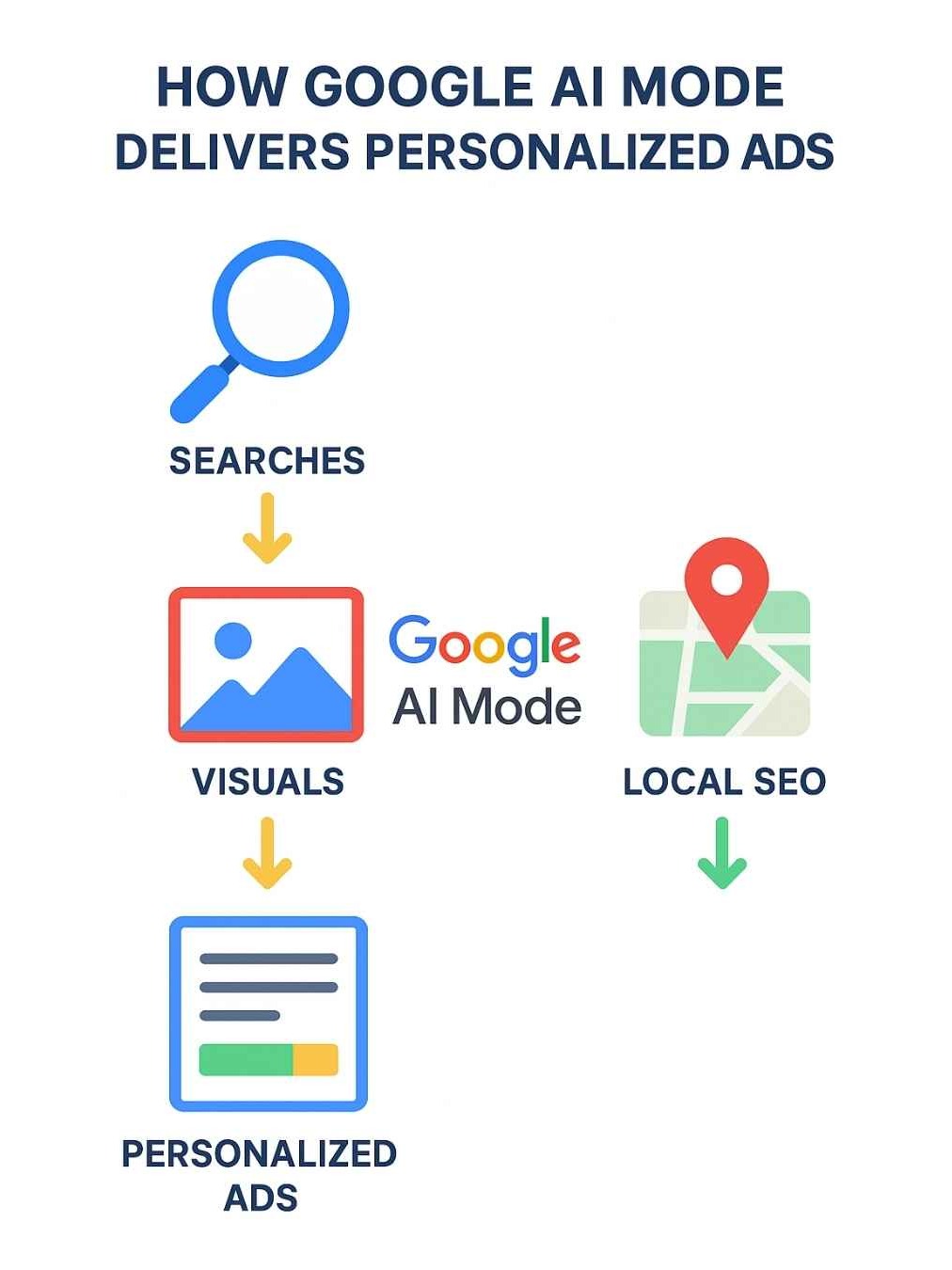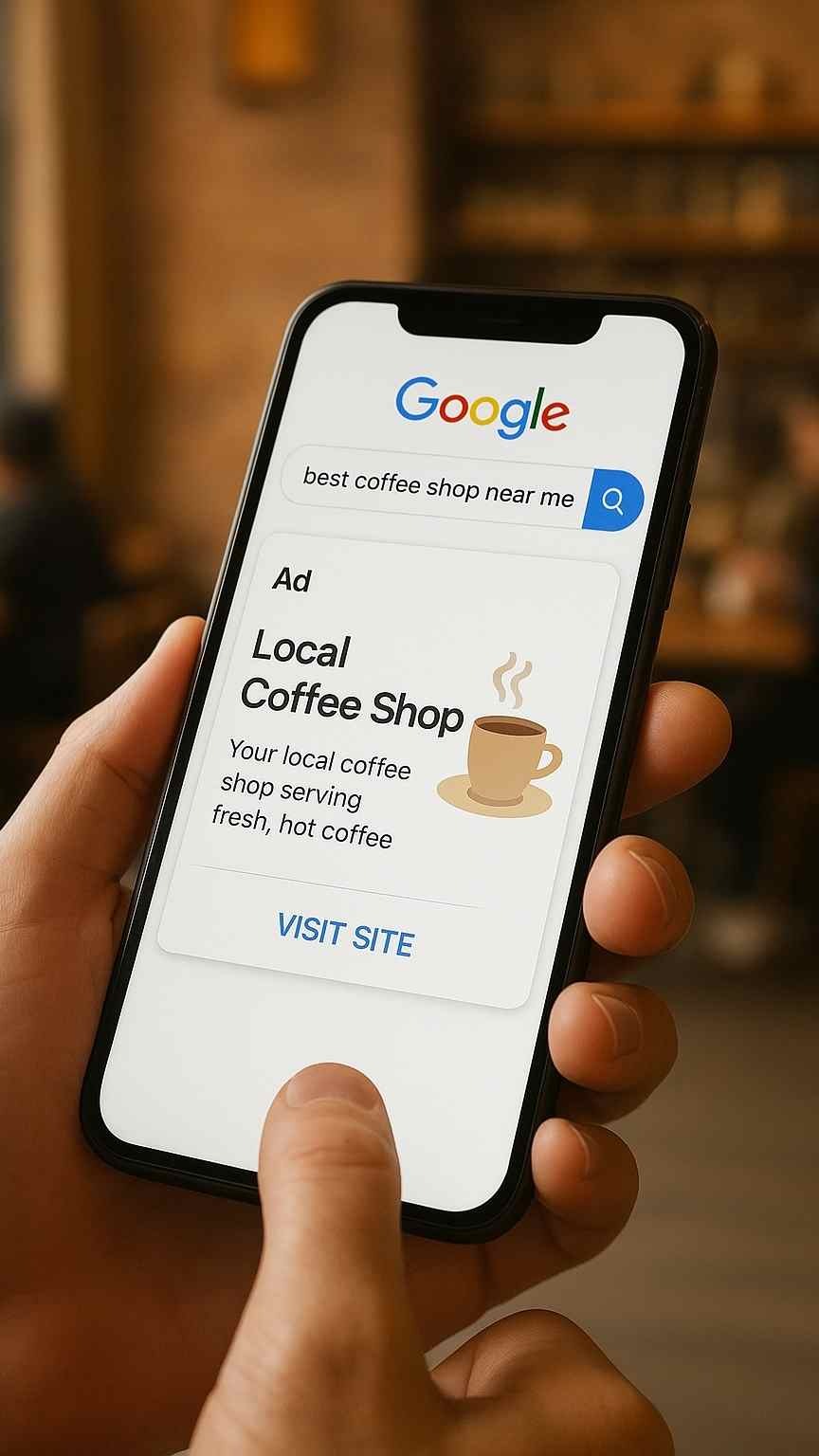When Maria, a small bakery owner in Chicago, noticed her website traffic plummeting, she felt a knot in her stomach. She’d spent years building her business, but suddenly, customers weren’t finding her online. Then she learned about Google’s 2025 AI Mode advertising changes—a game-changer shaking up how people search and shop. This isn’t just a tech update; it’s a chance for businesses like yours to shine. By the end of this guide, you’ll discover how to turn Google’s AI Mode into your secret weapon for attracting customers and boosting sales.
Key Takeaways
Google’s AI Mode changes how ads appear in search, making them more personalized and conversational.
Small businesses can stand out by optimizing their websites and ads for AI-driven searches.
Storytelling and local SEO are key to connecting with customers and ranking higher.
Acting now can help you stay ahead of competitors and drive more leads.

What Is Google AI Mode and Why Should You Care?
Google AI Mode is a new way Google delivers search results in 2025. Instead of showing a list of links, it acts like a smart assistant, giving direct answers, images, and videos based on what you’re looking for. For example, if someone searches “best bakery in Chicago,” AI Mode might show Maria’s bakery with a photo of her famous cupcakes, a customer review, and a map to her shop—all without clicking a link.
Why does this matter? Google handles over 5 trillion searches a year, and AI Mode is becoming the default way people find businesses. If your business isn’t ready, you could lose customers to competitors who are.
Why It’s a Big Deal for Your Business
Personalized Ads: AI Mode uses your search history to show ads tailored to you, like suggesting Maria’s cupcakes to someone who loves desserts.
Fewer Clicks: 80% of users now stay on Google’s results page, meaning fewer visit your website unless you adapt.
Local Power: AI Mode loves local businesses, so optimizing for “near me” searches can put you in front of nearby customers.
How Google’s AI Mode Changes the Game
In 2025, Google is weaving ads into AI Mode, blending them seamlessly with search results. This means when someone searches for a product or service, ads appear as part of the conversation, not as separate banners. Picture this: John, a busy dad, searches “quick dinner ideas.” AI Mode suggests a recipe and shows an ad for a local grocery store with ingredients ready for pickup. That store gets his business because it was there at the right moment.
The Shift in Action
Conversational Ads: Ads now answer questions directly. For example, a plumber’s ad might say, “Need a leaky faucet fixed? We’re 5 minutes away.”
Visual Appeal: AI Mode uses images and videos, so your ad could show a short clip of your product in action.
Smart Targeting: Google’s AI predicts what customers want, showing your ad to people ready to buy.
This shift is huge—businesses that adapt could see a 20–30% higher return on their marketing efforts, according to a McKinsey survey.
How to Make Google AI Mode Work for You
To thrive, you need to optimize your online presence for AI Mode. Here’s how to start, explained so anyone can understand.
Tell Your Story
People love stories, and so does Google’s AI. Instead of just listing your services, share what makes your business special. For example, a pet store owner named Lisa wrote a blog post about how her shop helped a shy puppy find a loving home. When someone searched “best pet store near me,” her story appeared in AI Mode, driving a 15% increase in visitors within a month.
Action Step: Write a blog post about a customer success story. For a coffee shop, describe how a regular customer found community over your lattes.
Focus on Local SEO
If you serve a local area, make sure Google knows where you are. Add your city and “near me” to your website content. For instance, a Seattle gym added “Seattle fitness classes” to their homepage and saw a 25% boost in new members after appearing in AI Mode’s local results.
Action Step: Update your website with your city name and phrases like “best [your service] in [your city].”
Answer Customer Questions
Google’s AI Mode loves clear, short answers to common questions. Use tools like AnswerThePublic to find what customers ask, like “How to choose a dentist.” A dentist in Miami answered this with a 50-word paragraph: “Pick a dentist with great reviews, modern equipment, and a friendly team. Visit their office to feel comfortable.” This landed them in Google’s People Also Ask section, increasing appointments by 20%.
Action Step: Create a blog post with subheadings like “What’s the Best Way to [Your Service]?” and answer in 40–60 words.
Use Eye-Catching Visuals
AI Mode loves images and videos. A florist named Tom added a video of arranging a bouquet to his website. When someone searched “flower delivery near me,” his video popped up, leading to a 30% increase in orders.
Action Step: Add a short video or high-quality photos of your products or services to your website.
“The future of marketing isn’t about shouting louder; it’s about connecting smarter.”
— Vidhya Srinivasan, VP and General Manager, Ads and Commerce at Google
See How Digital Marketing All Can Drive More Traffic to Your Website
Brand Voice Strategy: Let our team help you create your brand voice to attract your ideal customer.
Local SEO: Unlock more SEO traffic. See real results. Dominate your local market.
Dominate Google: Let us get your company to the top of Google.
Competitive Link Analysis: Know what your competitors are doing.
Geo-Targeting: Let us find your customers in your desired location.
Content Marketing: Our team creates epic content to be shared, generate links, and attract traffic. We know the secret recipe for success.
Paid Media Advertising: Effective paid strategies with clear ROI. You pay per result with us.
Blogging Services: Let us create a blog that will help you rank.
Search Price Optimization: Wouldn’t it be great if Google and Bing recommended your business? It is possible. Not only can you own the keyword in your local area and nationally exclusively, but you can control your advertising cost by getting out of the price war that exists in pay-per-click advertising and achieve a higher ROI.
Marketing Consulting: Develop tailored strategies to grow your brand and maximize impact.
AI Agent: Get a customized AI Agent that will become your 24/7 Sales Agent.
Business Coaching: One-on-one coaching to help you through anything that is hindering your business.
Real Success Stories to Inspire You
Local Bakery: A bakery in Austin optimized for “best cupcakes in Austin” with a blog post about their unique recipes. They landed in AI Mode’s Featured Snippet, boosting foot traffic by 18% in two months.
Fitness Studio: A yoga studio answered “How to choose a yoga studio?” with a story about a beginner’s transformation. Their PAA appearance led to 150 new sign-ups in a quarter.
Plumber’s Win: A plumber targeted “How to fix a leaky pipe?” with a clear answer and a video. Their AI Mode ad drove a 22% increase in calls.

FAQs
What is Google AI Mode for businesses?
Google AI Mode is a new search feature in 2025 that delivers personalized, conversational results with ads integrated naturally. It helps businesses reach customers faster.
How does Google AI Mode affect small businesses?
It can reduce website clicks but boosts visibility for optimized businesses. Focus on local SEO and storytelling to stand out.
How can I optimize my website for Google AI Mode?
Add your city to content, answer customer questions clearly, and use visuals. For example, a café might blog about “best coffee in [city].”
Why are visuals important for AI Mode ads?
AI Mode prioritizes images and videos, making your business more engaging. A short video can increase clicks by up to 30%.
How do I get into Google’s People Also Ask section?
Write clear, 40–60-word answers to common questions under H2/H3 headings. Use FAQ schema to boost your chances.
Your business is at a crossroads. Google’s AI Mode is rewriting how customers find you, and the clock is ticking. Will you be like Maria, turning this change into a chance to grow, or risk fading into the background? Take the first step today. I hope you enjoy reading this blog post. If you want to be our next success story, have my team do your marketing. Click here to book a call!
 Add Row
Add Row  Add
Add 








Write A Comment